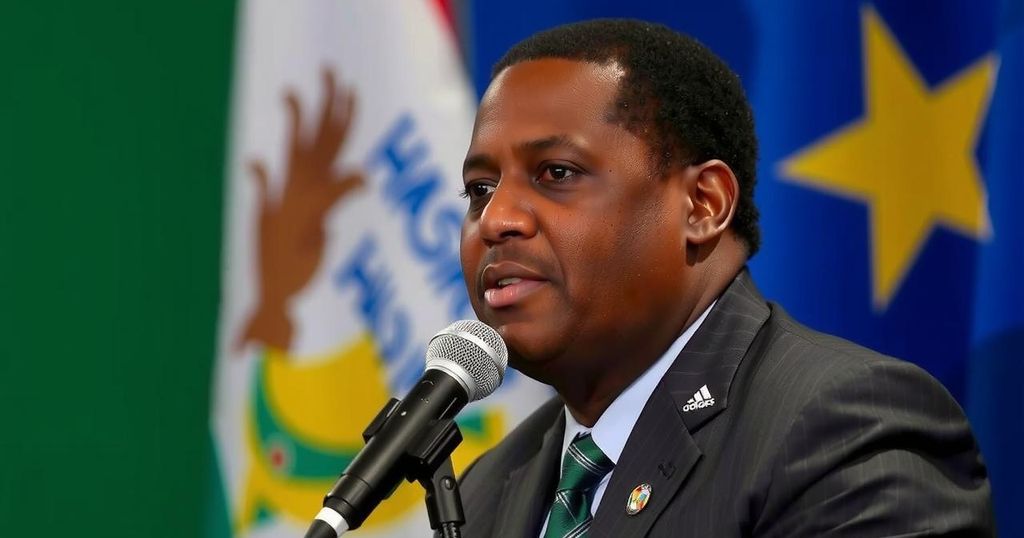Garry Conille Ousted as Haiti’s Prime Minister in Controversial Move
Garry Conille has been removed as Haiti’s Prime Minister after less than six months, with businessman Alix Didier Fils-Aime named as his successor. Conille dismissed his ousting as illegal, raising concerns about the legitimacy of the Transitional Presidential Council’s authority. Haiti faces a severe security crisis, gang violence, and humanitarian issues, including widespread hunger and displacement.
Garry Conille, the Prime Minister of Haiti, has been ousted from his position by the Transitional Presidential Council (TPC) following a mere six months in office. This decision was formalized through an executive order endorsed by eight of the council’s nine members, appointing businessman Alix Didier Fils-Aime as the new prime minister. Conille, who had been expected to address Haiti’s severe security crisis and facilitate the nation’s first presidential elections since 2016, described his dismissal as illegal and expressed deep concerns about the implications for Haiti’s future. He indicated that the current constitutional framework permits only the parliament to dismiss a sitting prime minister, and since Haiti lacks both a president and a parliament, this decision raises questions about its legitimacy. Conille took office on June 3, 2024, amid a backdrop of escalating violence orchestrated by gangs, which has plagued the nation. His predecessor, Ariel Henry, exited the position following a gang takeover of key areas, including the international airport in Port-au-Prince. The TPC was established to restore order amid a chaotic political climate that has resulted in thousands of deaths and widespread displacement. Presently, the United Nations reports that over 3,600 individuals have died since January, and approximately 500,000 have been forced to flee their homes. Additionally, two million Haitians are reportedly facing severe food insecurity, with many experiencing catastrophic levels of hunger. Haiti’s political instability is compounded by the significant influence of gang leaders, such as Jimmy Chérizier, who indicated a willingness to contribute to a peaceful resolution if armed groups are included in governmental discussions. Following the assassination of President Jovenel Moïse in July 2021, the presidential seat has remained vacant and gangs have significantly increased their territorial control, creating an environment marked by lawlessness. Recently, reports have emerged regarding the deployment of police officers from Kenya to bolster the nation’s security, amidst these increasing challenges.
The political landscape of Haiti has been historically tumultuous, characterized by a long-standing struggle with gang violence, corruption, and economic instability. Following the assassination of President Jovenel Moïse, the country has been left without a definitive leadership structure, resulting in an operational vacuum that gangs have exploited. The formation of the Transitional Presidential Council aims to restore democratic governance and address the numerous crises faced by the nation, including a significant humanitarian emergency affecting millions of citizens. Amid these challenges, any political maneuvers, such as the ousting of a prime minister, can exacerbate existing instabilities and provoke additional violence.
In summary, Garry Conille’s removal from the prime ministership reflects the deep-rooted challenges in Haiti’s governance and security frameworks. His tenure, though brief, highlighted the ongoing crisis resulting from gang domination and a lack of lawful authority. The TPC’s decision to remove Conille without constitutional grounds raises far-reaching implications for the nation’s political legitimacy and the urgent need for stability and democratic processes to be reestablished.
Original Source: www.bbc.com




Post Comment